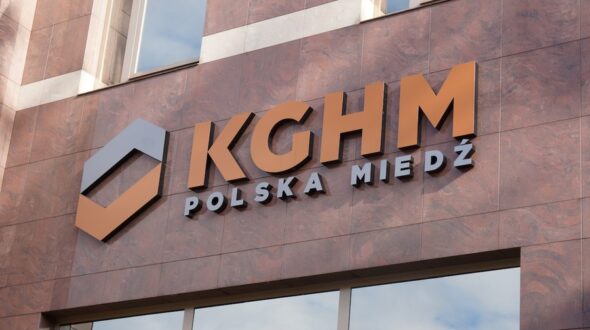What goes on in Poland on the 18th of August.
KGHM presented data from 2021. Record prices drive up the results
In the first half of 2021, KGHM recorded a twofold increase in adjusted EBITDA. Payable copper production increased by 8.6 percent and revenues by over 30 percent compared to the first half of 2020.
– We are closing the first half of the year with a double EBITDA and a significant increase in revenues, ie by over PLN 3.5 billion. We achieved a greater volume of payable copper, while ensuring the safety of employees and responsible production. This is confirmed by high safety indicators and the international Copper Mark certificate obtained by our mills – said Marcin Chludziński, president of KGHM.
In the first half of 2021, KGHM recorded an increase in production indicators. Production of payable copper by the KGHM Group was 8.6 percent higher than in the corresponding period of 2020 and amounted to 381 thousand tonnes. tone. In turn, the production of payable copper increased by 4.4 percent compared to the same period in 2020 and amounted to 293 thousand tonnes. tons – informs KGHM.
NIK: The activities of the Ministry of Climate and Environment in 2017-2020 did not eliminate the difficulties in the operation of renewable energy sources
The Supreme Audit Office (NIK) carried out an inspection, which shows that the actions of the minister responsible for energy matters, and later the minister responsible for climate matters, did not allow to eliminate all difficulties in the operation of renewable energy sources (RES).
– One of the reasons for the inspection was the high probability that by the end of 2020 the target of 15 percent share of energy from RES in the gross final energy balance will not be achieved. This threatened with the purchase of such energy from other EU countries or a financial penalty for Poland – we read in the press release.
NIK was audited by the Ministry of Climate and Environment (MKiŚ) and the Energy Regulatory Office (ERO). The audit covered the period from 2017 to mid-2020, according to ISBNews.









